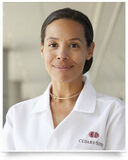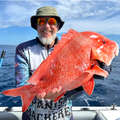Special Patient Video: What Do Christine & Pedro Have in Common?
By Adam Pick on March 23, 2015
[Update: Please note that Dr. Allan Stewart is no longer performing surgery at Mount Sinai Hospital.]
On a recent trip to New York, I was very fortunate to meet Christine Pittelli, a full-time mother of two girls, and Pedro Mejias, a world record power lifter who has bench pressed 645 pounds.
I had a great time with Christine and Pedro. Hearing their success stories was both inspiring and educational. I learned a lot about bicuspid aortic valves, aneurysms, valve repairs, minimally invasive techniques and Dr. Allan Stewart, their surgeon. For these reasons, I just posted this video.
Many thanks to Christine Pittelli and Pedro Mejias for sharing their stories with me and our community. Plus, a special thanks goes out to Dr. Allan Stewart for his extraordinary care of our patients. Dr. Stewart has successfully treated 100+ patients from our website. 🙂
Keep on tickin!
Adam
P.S. For the hearing impaired members of our community, here is a written transcript of the video.
Adam Pick: Hi, everybody! It’s Adam with HeartValveSurgery.com. As patients who have been diagnosed with aortic valve disorders and aortic aneurysms are often confused about the surgical process for fixing those disorders, I wanted to meet with a leading cardiac surgeon and patients, to learn more about the steps and the tips for making it through heart surgery.
Christine Pittelli: My name is Christine Pittelli and I’m from Madison, Connecticut. I am a full time mother of two beautiful children, 9 and 11 years old. I have two girls. I was diagnosed when I was 16 years old. They informed me, from listening to my heart, that I had a heart murmur. Sometimes doctors would hear it and then other times, doctors couldn’t hear it at all. I was at an appointment, a routine physical, seven years ago. I was called and told I did not have what I thought I had; that I actually had a bicuspid aortic valve, which I knew nothing about. More concerning to them was an aneurysm in my ascending aorta.
Pedro Mejias: My name is Pedro Mejias and I’m from Brooklyn, New York. I’m a professional power lifter and I hold the world record of 645 pounds in the bench press. I was going for regular check-ups since 2012 and she did an echocardiogram, she did a CAT scan, EKG. You know you have an aortic aneurysm and it’s 4.9. When she said it’s 4.9 that means I need to hurry up and get this thing taken care of.
Christine Pittelli: I was scared. I was very afraid. I scheduled something as soon as possible, and I went and had the MRI done.
Pedro Mejias: Everything came at once. I had to stop lifting. I can’t go to the gym. My whole life is going to change.
Christine Pittelli: The options I was given when I was told I need surgery was two choices, a mechanical valve or a tissue valve, a pig valve. I decided I was going to listen to my gut. Something was bothering me. For about a week, I just was thinking about things, and finally one night I got up and I went over to my computer and I started Googling my surgery.
Pedro Mejias: I Googled aortic aneurysm. I Googled heart surgery.
Christine Pittelli: Up popped up something called minimally invasive surgery. Also who popped up was my surgeon that I ended up picking, Dr. Allan Stewart at Mount Sinai.
Pedro Mejias: Dr. Stewart’s article stood out to me. I was in the gym when I was reading it, and after I finished reading it I made an appointment to get a consultation.
Dr. Allan Stewart: When I meet a patient in the office the first thing I do is to try and disarm their apprehension. To take away the fear that they’re going to have open-heart surgery and that sets them at ease initially. Then I like to explain the operation in plain terms.
Christine Pittelli: I explained to him what the previous surgeon had told me my options were. He looked at me and he says, “I can repair your valve. You won’t need a mechanical valve. You won’t need the tissue valve.” I remember my jaw dropped. I read about it online but hearing it from a surgeon saying, “I can repair your existing valve.”
Allan Stewart: Christine Pittelli came to my office as a second opinion. She was only offered a mechanical valve replacement through a full sternotomy, meaning a cut that was going to be about a foot long from her neck down to her abdomen. We talked at length about having a minimally invasive approach. She was shocked that that was possible, and we repaired her aortic valve. That way she was not on a blood thinner for the rest of her life. She has a perfectly functioning valve now, which opens properly, closes properly, and should last her the rest of her life.
Pedro Mejias: He was cool. From the way he sit and talked and everything, he was straightforward. He didn’t beat around the bush. He just said, “You know you’re going to have this surgery. You need it. You don’t have to do it now but you need it. You’re going to have it, whether you do it now or later. It’s up to you to pick and choose when you want to do it.” Putting it like that, I chose to do it immediately; I didn’t want to wait.
Allan Stewart: The problem with Pedro is that he had a massive very, very thin aorta, which I think was due to rupture or tear. If he left that alone, one day he was going to put 700 pounds on his chest and his aorta’s just going to blow apart so he needed to be fixed. Pedro is doing fantastic now. He’s seen me back in the office. He’s got a tiny little scar, which is well healed. He’s already started lifting weights again and feels good and keeps in touch regularly.
Pedro Mejias: Mount Sinai was amazing. It made my time short. My stay in the hospital was short. It didn’t feel like a week.
Allan Stewart: I believe that patients are responsible and partners with their surgeon in healing. It’s one of the reasons why I reassure patients before they go into the operating room that they’re going to be okay. I think a positive mindset is essential because they want to know that they’re going to get better. If they believe they’re going to get better, they will get better.
Christine Pittelli: I’m feeling well and I’m just very grateful I’m doing well so far. Knock on wood!
|
Arlie Rauch says on March 25th, 2015 at 2:42 pm |
|
I enjoyed reading these accounts. But it seems like having the valve repaired is the end of the story. Mine was repaired almost two years ago. It’s supposed to be good for the rest of my life, whatever that is. But I do feel various phenomena at various times, and no one ever discusses those. It’s like: no matter how you feel, everything is fine now that the valve was repaired. Maybe it is. But it would surely be nice to compare notes with others or have someone speak sometime about post-op phenomena. I wonder why I feel what I feel. Knowing why my pickup makes a certain noise puts me at ease; then I know whether I need to take action or not. |
 |











